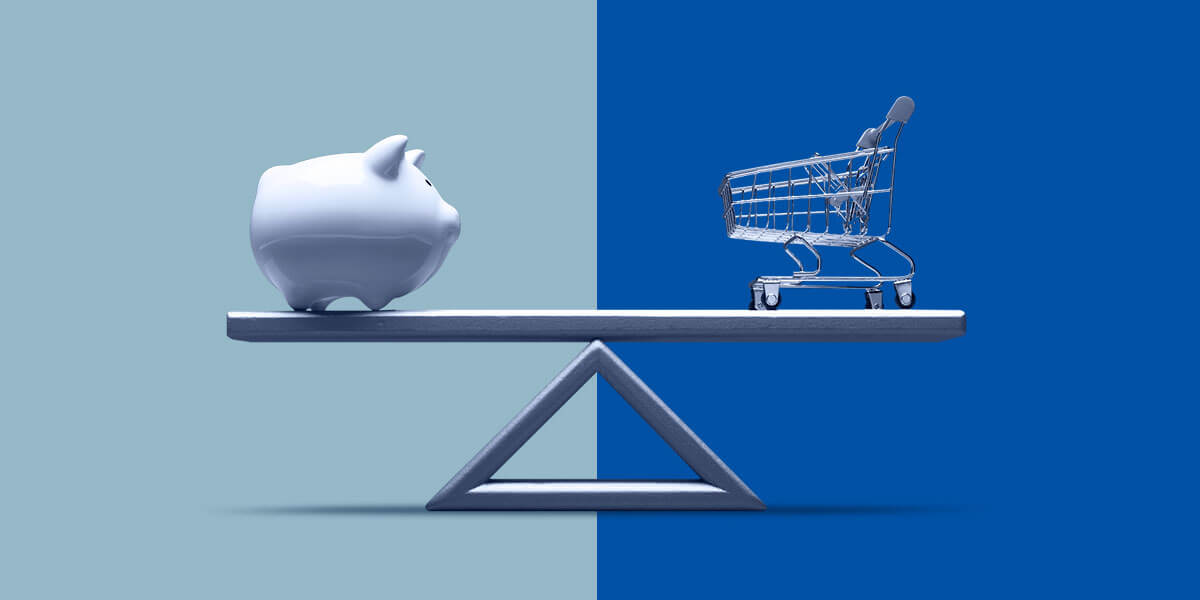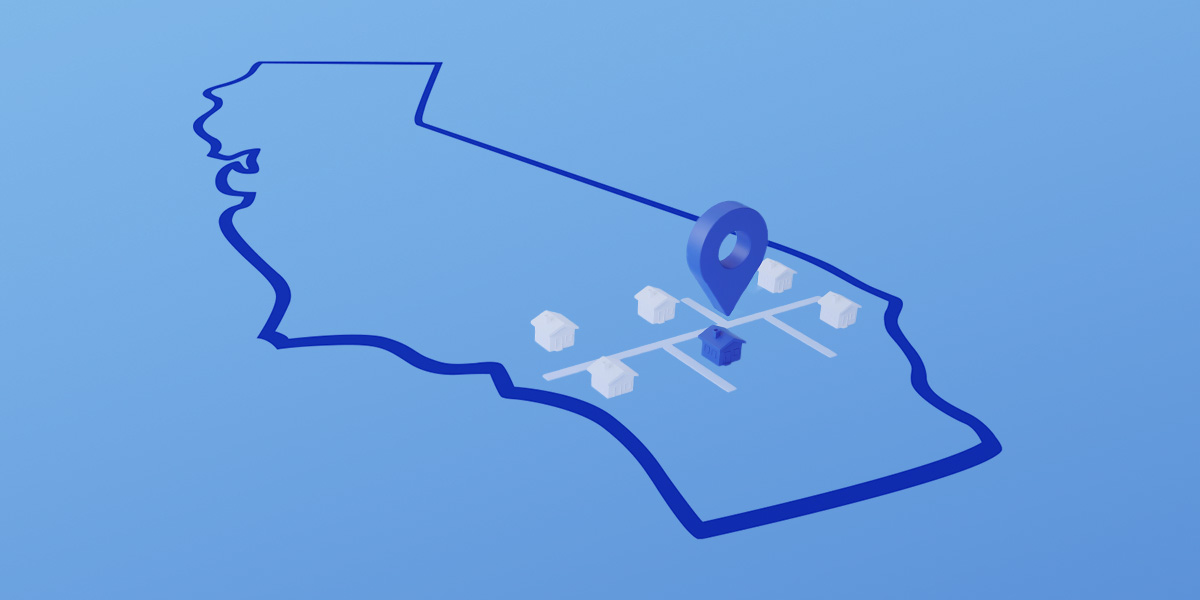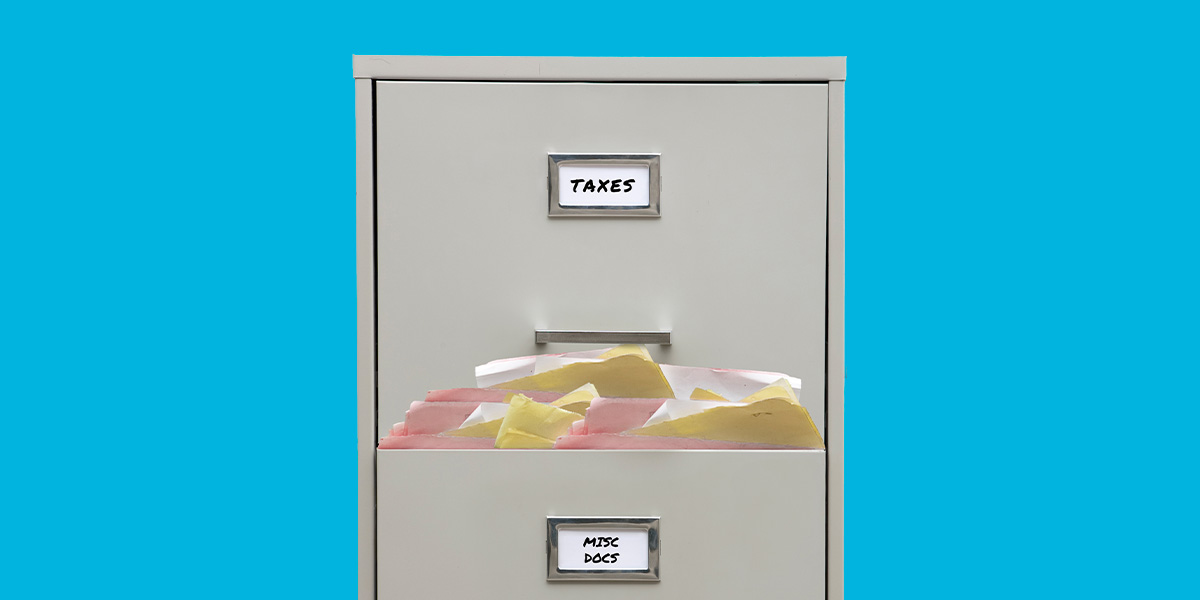-
Personal Banking -
Insights
What Are the Different Types of Bank Accounts?
Bank accounts are convenient and secure places to keep your money safe and allow you to withdraw funds when needed. There are various types of bank accounts that each serve a different purpose, such as saving for emergencies or for specific goals, earning interest or accessing money to pay bills.
The money you deposit in bank accounts is insured by the U.S. government for up to $250,000 per depositor, per account category, per bank, through the Federal Deposit Insurance Corporation (FDIC).
Here's a look at five common types of bank accounts and how they can be used to help meet your financial goals.
Checking Accounts
A checking account is, for many people, the most basic type of deposit account. It provides a place to safely park the money you need to use regularly and easily access it to pay bills or make purchases. For most people, a checking account is where their paycheck is deposited, where bills are paid from, and where they keep the funds they use to make everyday purchases.
Traditionally, a checking account came with paper checks so you could write checks out of the account to pay bills or make purchases. Today, you may still have paper checks associated with your checking account, but you will probably also have a debit card tied to the account.
You can use a debit card just like a credit card, but the funds come from your checking account—so you don't get a bill at the end of the month. The caveat is that you have to keep track of your spending to avoid spending more than you have available in your checking account.
You can often get a checking account with no fees if you maintain a balance of a certain amount, and checking accounts often come with additional benefits.
Business Checking Accounts
If you own a business, you will need a business checking account to keep your business finances separate from your personal finances. Business checking accounts are also used to securely maintain cash that can be accessed easily via checks or debit cards.
Savings Accounts
For smart money management, a savings account is just as important as a checking account. Savings accounts allow you to earn interest on the money you save. While some banks pay interest only when a savings account balance reaches a specific minimum amount, others, such as City National savings accounts, earn interest on all balances.
While a savings account is intended as a place to save money, withdrawals are typically easy to do, so your money remains accessible when you need it. However, to encourage saving, some financial institutions place restrictions on the number of withdrawals you can make in a month.
Savings accounts may also have a daily minimum balance requirement, and the larger your savings account balance, the more interest you earn.
Along with allowing you to earn interest, a savings account can also serve as a backup for your checking account. If you open a savings account and a checking account at the same financial institution, the accounts may be able to be linked so that your savings account can provide what is called "overdraft protection" if you spend more than you have available in your checking account.
With overdraft protection, a bank will cover the cost of a withdrawal — up to a specified amount — if a checking account has insufficient funds for the transaction. It'll then cover the cost of that withdrawal from a source such as savings.
Business Savings Accounts
Business savings accounts are similar to personal savings accounts, but they are used to save business earnings for future business use. Funds deposited in a business savings account can earn interest while the funds still remain easily accessible when needed.
Certificates of Deposit (CDs)
A Certificate of Deposit, also known as a CD, is a timed bank deposit available with various maturity dates. For example, City National offers CD terms as short as seven days and as long as 60 months.
CDs allow you to earn higher interest rates than savings accounts, in return for giving up access to your deposited funds for an agreed-upon period of time.
Note that you might be charged a penalty if you withdraw the money before the end of a CD's term. This makes it important to carefully consider what length term is right for your personal situation before depositing money into a CD.
The money in CD earns a fixed rate of interest over the term, and when the term is complete, you can cash out the CD or renew it for a new term at the current interest rate.
Because both the term and the interest rate are guaranteed from the outset, CDs offer a way to grow your money with less risk than other options.
Business Certificates of Deposit (CDs)
For business owners with financial reserves, business CDs are available. They can be a great way to store and grow cash reserves.
Like a personal CD, a business CD account pays a fixed rate of interest over a set period of time. When that term is completed, the CD matures, and the business owner can either cash out the account or renew it for a new CD term.
Money Market Accounts
Money market accounts are basically high-yield savings accounts. They usually require that you maintain a minimum daily balance and they offer higher interest rates for customers who maintain that balance.
For example, City National money market accounts come with tiered interest rates so that, as the account balance grows, the interest you can earn increases.
Like CDs, money market accounts are FDIC-insured up to $250,000 per depositor, per FDIC-insured bank, per ownership category. However, unlike a CD, the funds in a money market account are easily accessible without a penalty. A money market account usually offers a lower interest rate than a CD, but it can be a good choice for people who think they might need emergency access to their funds.
A money market account may also be a good option for money you don't need on a daily basis, such as for an emergency fund. It's accessible if you need it, but can earn interest at a higher rate than a basic savings account.
Business Money Market Accounts
Business money market accounts are also available for business owners who want to grow their money but also might need access to it as it grows. With a business money market account, you can get the same FDIC-insured security and ease of access offered by a typical savings account, but you can also earn higher interest as your balance grows.
Foreign Currency Accounts
Foreign currency deposit accounts can be convenient and cost-effective if you frequently travel internationally or do business with entities in other countries. With a foreign currency account, you can make and receive payments in foreign currencies in one account, allowing you to take advantage of favorable exchange rates and manage various international transactions in one spot.
At City National, all foreign currency deposit accounts are domiciled in the United States, providing FDIC insurance and simplified account management. However, it's important to note that these accounts are subject to exchange rate risks as currency markets fluctuate.
Determining What Bank Account Is Best for You
The right bank accounts for you will depend on your individual needs and financial goals. Most people can benefit from a basic checking account and a basic savings account, but additional types of accounts can also help you meet goals for emergency funds and other financial objectives.
Visit our bank accounts page to discover what options from City National can work best for your situation and financial goals.
This article is for general information and education only. It is provided as a courtesy to the clients and friends of City National Bank (City National). City National does not warrant that it is accurate or complete. Opinions expressed and estimates or projections given are those of the authors or persons quoted as of the date of the article with no obligation to update or notify of inaccuracy or change. This article may not be reproduced, distributed or further published by any person without the written consent of City National. Please cite source when quoting.
Deposit products and services are provided by City National Bank Member FDIC. City National Bank is a subsidiary of Royal Bank of Canada.
While Foreign Currency Deposit Accounts are FDIC insured up to allowable limits, they are subject to exchange rate risk. Exchange rate risk is the risk of fluctuations or change in the value of the foreign currency, which are inherent in foreign exchange markets. Foreign currency valuation may be impacted by numerous economic, political and social factors as well as supply and demand and government intervention, control and adjustment. Clients should be aware of the risks involved and are solely responsible for any and all decisions relative to foreign currency transactions.





